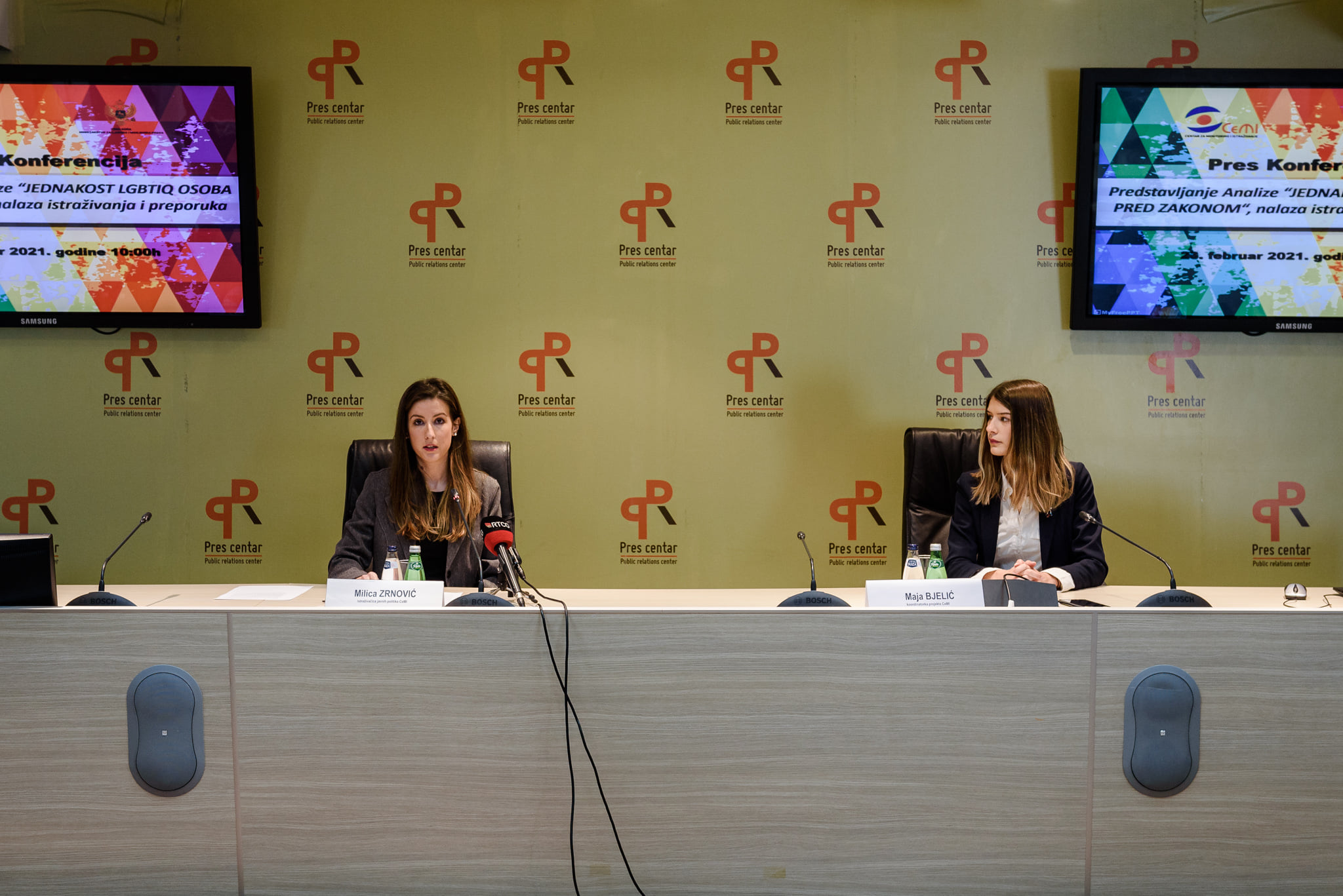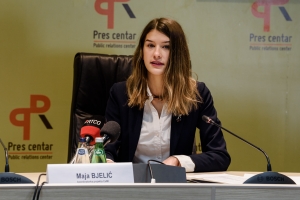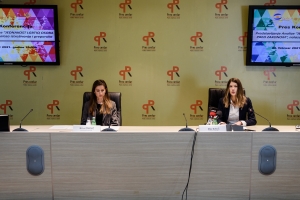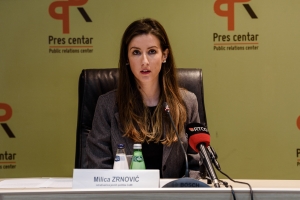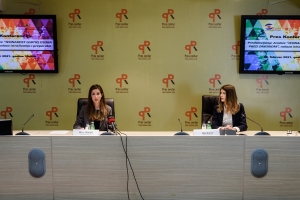In the first half of last year, all criminal charges filed for discrimination on the basis of sexual orientation, 15 of them, were related to comments made by citizens on Facebook profiles, and the sentences imposed have no deterrent effect.
This was announced at the press conference of the Center for Monitoring and Research (CeMI) on the occasion of the presentation of the Analysis "Equality of LGBTIQ persons before the law".
Public policy researcher at CeMI, Milica Zrnovic, said that within the project "Equality of LGBTIQ persons before the law - Improving the rights of LGBTIQ persons in court proceedings", that organization conducted an analysis of submitted criminal charges and judicial practice when it comes to the protection of LGBTIQ rights. a person.
"Based on the collected data, it is noticeable that the largest number of complaints due to discrimination based on sexual orientation, registered with the Police Directorate, related to comments made by citizens on social networks," stated Zrnovic.
She said that in 2018 there were 94 such reports (out of a total of 102 submitted criminal reports due to discrimination based on sexual orientation), while in 2019 that number was 87 reports (out of a total of 100 submitted criminal reports due to discrimination based on sexual orientation sexual orientation).
"In the first half of 2020, all criminal charges that were filed due to discrimination based on sexual orientation, 15 of them, related to comments made by citizens on Facebook profiles, mostly in May 2020," she said. Zrnovic.
Speaking about proceedings before the judicial authorities, Zrnovic said that past practice has shown that in cases of hate speech expressed on the Internet, social networks and other places of public space, warnings (by police officers), fines or warnings (in misdemeanor proceedings) are most often issued).
"It does not have a deterrent effect and does not send a clear message that hate speech must be responded to with effective, proportionate and dissuasive sanctions." In this regard, hate speech is most often reacted to by prosecuting in misdemeanor proceedings or issuing a warning measure, while the conduct of proceedings of a criminal-legal nature is still an exception," said Zrnovic.
She said that in 2016, Montenegrin courts had a total of two criminal cases in which members of the LGBTIQ population appeared as victims, while in 2017 there was 1 criminal case in which a member of the LGBTIQ population appeared as the defendant.
"According to the data obtained through research within the framework of this project, in 2018 and 2019, there were no cases before the Montenegrin courts with elements of discrimination in which LGBTIQ persons appeared as victims," Zrnovic stated.
According to her, for the purposes of preparing the Analysis, CeMI also conducted a survey among representatives of judicial authorities, the NGO sector, lawyers, state institutions that deal with the issue of discrimination and the protection of human rights, through in-depth interviews in order to gain insight into the perception of the problem of discrimination of the LGBTIQ community in court proceedings. by different actors, as well as looking at possible solutions in this regard.
Speaking about the recommendations for further improvement of the protection of the rights of members of the LGBTIQ population, Zrnovic said that it is necessary to enable all the conditions for the full and smooth implementation of the Law on Life Partnership of Persons of the Same Sex, whose implementation is planned for July 2021.
"It is necessary to continue the adequate implementation of all activities provided for in the Strategy for Improving the Quality of Life of LGBTI Persons in Montenegro (2019-2023), as well as to create and adopt the Law on Gender Identity in accordance with the principle of self-determination," said Zrnovic.
She said that it is necessary to additionally strengthen the capacities of the relevant police and judicial authorities on sensitive treatment and protection of the LGBTIQ population from discrimination by conducting educational seminars and trainings.
"It is necessary to further strengthen the capacities of the police and judicial authorities to prosecute computer crimes and violations of human rights through information and communication technologies, especially on the basis of sexual orientation and gender identity, as well as to take measures to combat hate speech on the Internet and online harassment, in terms of judicial prosecution of cases of hate speech against members of the LGBTIQ population", stated Zrnovic.
She assessed that it is necessary to constantly work on the education of citizens and the prevention of all forms of hatred and violence through educational campaigns of the media and the NGO sector, as well as to more consistently apply the normative framework for protection against discrimination and violence against LGBTIQ persons in order to ensure adequate processing and sanctions with standardized practice.
"It is also necessary to improve the information of LGBTIQ persons about their legal rights, rights in the online space and instruments of their protection," Zrnovic pointed out.
CeMI project coordinator Maja Bjelic said that the organization is implementing the project "Equality of LGBTIQ persons before the law - Improving the rights of LGBTIQ persons in court proceedings" with the support of the Ministry of Human and Minority Rights.
"The project aims to contribute to an increase in the level of respect for the human rights of members of the LGBTIQ community in Montenegro, which will be reflected in a reduction in the level of discrimination, as well as an increase in public awareness and information about the sensitive treatment of LGBTIQ people in Montenegro in court proceedings," she said. White
The project, as she stated, is aimed at strengthening the capacity and greater training of judicial instances in the prosecution of criminal offenses against the LGBTIQ population, as well as the treatment of LGBTIQ persons in the proceedings in an equal and adequate manner.
"The focus of this project is the harmonization of human rights policy with the implementation of the same in Montenegrin legislation, all in accordance with international standards recognized through numerous international documents, treaties and conventions, such as the Universal Declaration of Human Rights, the International Covenant on Civil and Political Rights, the Convention for the Protection of Human Rights and Fundamental Freedoms and its Protocols, the United Nations Declaration on Sexual Orientation and Gender Identity, etc.’’, Bjelic concluded.
